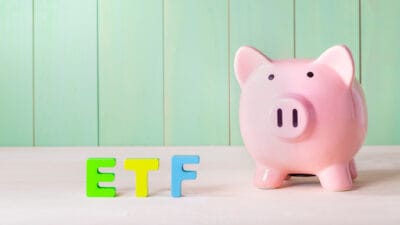The Vanguard Australian Shares Index ETF (ASX: VAS) is a little bit different to your standard index fund.
Instead of tracking the performance of what is considered the market benchmark — the S&P/ASX 200 Index (ASX: XJO) — the VAS ETF tracks the S&P/ASX 300 Index (ASX: XKO).
This means there is an extra 100 companies contributing to the performance of the ASX VAS exchange-traded fund (ETF).
All 100 of these companies are ASX small-cap shares with market capitalisations below $1.1 billion.
The big pro of this for the ASX VAS is that small caps have more room for growth than large-cap shares.
The con is they can also underperform, or fail as companies altogether.
This is because small-caps are generally young companies that are still on their growth path.
They typically have less liquidity, some are speculative businesses by nature, and all of this means their share prices are more volatile.
So, does tracking 300 companies give the ASX VAS an edge over the ASX 200 index funds?
Let's take a look at ASX data documenting the 1, 3, and 5-year total returns of VAS vs. the ASX 200 ETFs.
VAS ETF vs. ASX 200 ETFs
| Name of index/fund | 1-year total return | 3 years total return (pa) | 5 years total return (pa) | Management fee |
| Vanguard Australian Shares Index ETF (ASX: VAS) | 10.7% | 11.87% | 8.36% | 0.07% |
| Ishares Core S&P/ASX 200 ETF (ASX: IOZ) | 11.39% | 11.99% | 8.31% | 0.05% |
| BetaShares Australia 200 ETF (ASX: A200) | 11.12% | 12.55% | 8.49% | 0.04% |
| SPDR S&P/ASX 200 (ASX: STW) | 11.24% | 12.23% | 8.41% | 0.13% |
Based on the data above, it looks like tracking 300 companies does not give the ASX VAS an advantage.
VAS delivered a superior performance in only one instance, and by only a 0.05% margin. (See the five-year total returns for VAS compared to IOZ.)
The stocks VAS has that ASX 200 ETFs don't
All of these ETFs include the big ASX 200 shares like BHP Group Ltd (ASX: BHP), Fortescue Metals Group Ltd (ASX: FMG), CSL Ltd (ASX: CSL), Commonwealth Bank of Australia (ASX: CBA), National Australia Bank Ltd (ASX: NAB), Woodside Energy Group Ltd (ASX: WDS), and Wesfarmers Ltd (ASX: WES).
But VAS also tracks those 100 smaller companies immediately outside the ASX 200.
Some examples include: Weebit Nano Ltd (ASX: WBT), Temple & Webster Group Ltd (ASX: TPW), Core Lithium Ltd (ASX: CXO), Nick Scali Limited (ASX: NCK), and Sayona Mining Ltd (ASX: SYA).
Don't index funds pretty much deliver the same returns?
Index funds are an easy way of generating steady long-term capital growth as well as passive income via dividends.
Obviously, there is very little variance in the total returns between ETFs if they track the same index, like the three ASX 200 ETFs showcased above.
But one factor that can contribute to variances is the management fee.
As shown above, the ASX VAS charges a fee of just 0.07%, but it's the third most expensive of these four ETFs.
All index funds and managed funds charge a management fee to run the fund.
The fees on index-based ETFs are much lower because there isn't that much to do.
Managed funds typically adopt an investment strategy and, therefore, require stock-picking expertise.
So, you pay a bit more for that higher level of service.
In late afternoon trading on Wednesday, the ASX VAS is down 0.72% to $89.70 per share.








